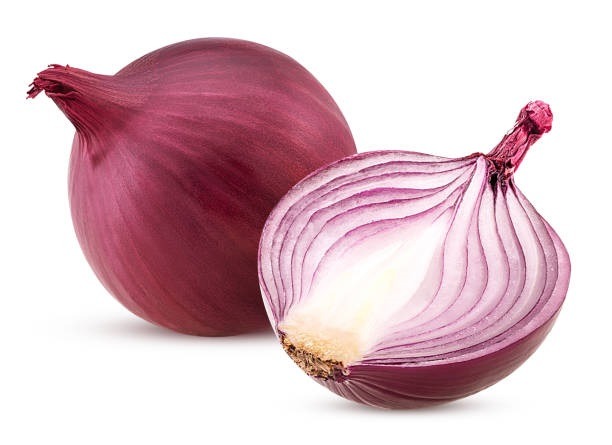How to Rid your Kitchen of the Smell of Curry, Fish and other Odors

Curry is a favorite spice for many that’s made using strong spices like cumin and turmeric.
While curry gives food an excellent taste and aroma, the strong after smell can be very hard to get rid of from the kitchen and other rooms. This is because the spices emit pungent vapors when cooking.
Even after preparing your food, the vapors may keep penetrating porous surfaces like upholstery, drapery, carpets and even walls.
To effectively get rid of the after smell, you should wipe out all the residue grease molecules that are released during the cooking process.
With the help of various cleanup techniques discussed below, you can get rid of the curry smell from your kitchen.
Techniques to eliminate the smell of curry
1.Air it out
Natural air is your first go to solution when dealing with left over curry smells. You should open your kitchen windows before you cook with curry and turn the stove hood vent on if you have one installed.
Also make sure the windows are open while cleaning the curry odor. It is essential that you get fresh air moving through the kitchen when you’re combating curry odors.
2. Clean the kitchen air
To clean the air in the kitchen, pour some water in a pot and then add a few slices of fresh lemon. After that, boil the water and lemon cutting mixture to allow the deodorizing scent to go through your kitchen and other rooms.
You should boil the pot for about an hour or more and supply water as required. For a fresher scent, you can add cloves or cinnamon.
3. Freshen the fabrics
When cooking curry, the odor of curry will most likely attach to the fabrics in the kitchen like the curtains.
The curry smells can also go beyond the kitchen causing the drapers and upholstery in other rooms to smell.
If the curtains, drapery and carpets stink of curry, you can use various methods to clean them. Use baking soda and vacuum cleaner to clean the carpets and furniture fabrics.
To clean off the curry smell, sprinkle baking soda solution (baking soda and water mixture) on the furniture and leave it overnight. Baking soda will absorb the curry smell. After that, you should vacuum it in the morning.
Depending on how strong the smell is on the curtains, a normal wash with a scented detergent should be sufficient to neutralize the smells.
4. Natural neutralizer
After using curry, clean the cooking utensils and kitchen surface with a nice smelling neutralizing dish washing solution.
You can also mix vinegar and water in a bucket and use the mixture to wipe the interior of the kitchen like cupboard doors, counters and tables. You can try cleaning everything in the kitchen as curry residue covers everything.
After you’ve finished cleaning up the kitchen interior and utensils, make a new bucket of vinegar and water and mop the kitchen floor.
How to get rid of the onion smell in my kitchen

Onions are a tasty kitchen staple, which add complexity and flavor to a wide array of sweet-smelling dishes, from sides and casseroles to soups and stews.
However, chopping and cooking onions will leave the kitchen and other rooms stinking of the strong, tear-inducing smell of onions.
While the onion smell will hold fast to everything for many days, it is possible to get it out, particularly if you try more than one technique of getting rid of the onion odor.
Try the tips below to get rid of the onion smell:
1.Opening windows and doors
Before trying anything too complicated or costly to eliminate the onion smells, just open the windows and doors to let in the free fresh air.
If possible, open all your windows and doors, especially those situated opposite each other so you have a cross breeze coming through your kitchen.
If it isn’t too chilly, leave the windows and doors open for as long as possible. Even if it is cold, opening them briefly will still improve the situation.
2. Use the kitchen exhaust hood

During cooking, make sure you use the exhaust hood to help circulate the air and filter out odors, fumes and smoke.
You can leave the hood on for a short time after finishing cooking so that it can keep on clearing the air. Your kitchen hood will do a good job of extracting the strong smells and fumes leaving a fresh odorless kitchen.
You should ensure the countertops are clean and the kitchen sink is empty before trying other ways of getting the smell of onion out of your home.
In addition, ensure the trash disposal isn’t filled with onion scraps, the dishwasher is running and the trash can is empty and free from onion cuttings.
3. Green tea
Boil some water in cookware that stinks of onion. Once it comes to boil, turn off the heat, throw in a couple of green tea bags and allow them to steep.
The scent will not only fill your home but will also get rid of onion reek from the pots and pans. You can choose whether to drink the tea or use it around your home, for cleaning or for skincare.
4. Simmering some spices
Two ways of getting rid of the onion odor without having to replace it are by using vinegar and fresh air. However, there are some ways of replacing the odor with something more pleasant as well.
One of the perfect choices is making a mixture of natural, dried perfumed plant materials, which you can simmer on your stove.
You can use whatever plants inspire you. Some of the classic choices include lemon and pine needles, cloves and oranges or cinnamon and apples.
5. Using vinegar
Placing white vinegar in the kitchen counter can help absorb odors. Choose an ornamental aesthetically pleasing bowl and place it close to the stove or near the food you are cooking or where you are preparing the onions.
For far-traveling or stubborn onion odors, you can put some vinegar in a crockpot with the lid off or in a pan and simmer on your stove.
This method may cause your house to smell of vinegar for a short time but the smell will vanish, and the vinegar smell is probably better than the onion smell.
6. Use a diffuser or make an essential oil spray
If you own some essential oils, it is simple to make a spray that is natural and cheap. Simply take a spray bottle and fill it with water and add ten drops of your preferred essential oils.
A few favorite ones include eucalyptus and tea tree oil, lavender and rosemary and lime and lemon.
An oil diffuser will work as well. Simply fill it up with some oil drops and water, and then plug it in on the kitchen counter.
How to get rid of the egg or fish smell in my kitchen

Often times, your nicely cooked boiled or well fried egg and spiced fish has a heavenly taste but it leaves a foul-smelling odor on your dishes.
What is even worse is that the smell doesn’t go away after cleaning the dishes and will linger in your kitchen or house long after you have gone hungry and forgotten the wonderful egg or fish dish.
You can use some basic kitchen ingredients to make the odor leave. Therefore, if you fancy your tasty fish or eggs dish but hate the odor it leaves on your dishes and kitchen, then you might want to know some of the practical ways of removing it.
The first simple rule is to ensure that you separate the dishes you used to cook or eat your eggs or fish from other dishes, to prevent transferring the odor into the utensils.
You should also wash those dishes separately and preferably after you have washed all the other dishes to ensure they do not infect the others with that stubborn egg or fish odor.
Here are other ways to get rid of fish or egg smell before and after cooking:
1.Think about your method of cooking
A range of different cooking techniques creates different amounts of cooking smells. If you’re worried about a lingering odor, you can try techniques such as braising, steaming or poaching to cook fish since they emit less odors.
While pan roasting, sautéing and frying creates great aromas during the cooking process, these methods emit stronger smells since they release more fat particles into the air in your house.
2. Select a less smelly fish type

Most fish usually smell after cooking, but there are specific fish that have more pungent cooking odors than others.
Oily fish such as sardines, mackerel and various kinds of salmon are usually more nasty-smelling than white meat fish such as snapper, tilapia and flounder. Some dried, smoked fish may also have stronger odors.
The odor usually occurs because of the amounts of amines in a fish. This is why people squeeze lemon onto the fish, to deal with the fishy-smelling amines.
If the fish you’re cooking cannot elude its smelly nature, then there are ways of minimizing the smell. Using lemon on your dishes and hands too is a simple natural way to neutralize fish smells.
3. Soak the fish
Before you cook fish, take a bowl of fresh milk and soak it for at least twenty minutes. The enzymes will help get rid of the fishy smell greatly.
You can also use diluted vinegar to soak the fish. To do this, just take a bowl and add 4 cups of water mixed with a few tablespoons of vinegar, and then put the fish in there.
4. Clean after you finish
After you’re done cooking and enjoying the mouthwatering food, you need to clean up as fast as you can to minimize the fishy odor. It’s best to do that before the odor gets worse.
In addition, quickly clear away any leftovers you might have by firmly wrapping and refrigerating them well.
You should clean all oily cooling platters, plates and pans right away after you use them. If the odor is too strong, give your dishes a second wash using a lemon solution or your lemon scented dish washing soap and ensure that you scrub your sink properly
Use lemon juice or vinegar to wipe kitchen surfaces and leave it on your counter overnight. In addition, you can use some simple water and salt or a paste of baking soda to clean the kitchen surfaces.
Ensure that you wash your dish washing sponges and clothes well using lemon juice or vinegar if the egg or fish smells are stubborn.
Finally, dispose of all the trash from the eggs or fish such as the egg shells or fish bones in a well-sealed baggage bag.
Throwing the remains in your kitchen trash can is not enough as the smell may linger.
Ensure that you immediately take the trash from your kitchen to your outside bin and wash, dry and air your kitchen bin if there is any direct contact with the egg or fish remains.
With these useful tips, you can enjoy your egg and fish dishes without having to endure pungent egg and fish smells.
